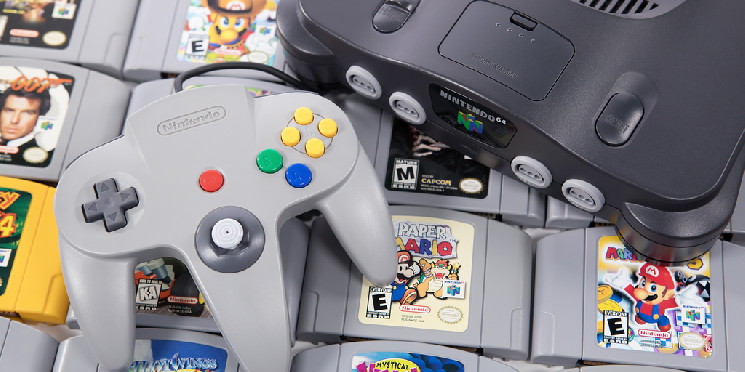The Ninjalerts team just started building a Super Nintendo Entertainment System (SNES) on the Bitcoin blockchain. This time, the Pizza Ninjas project has enrolled a Nintendo 64 (N64) emulator on the network, the group announced on Wednesday.
Like the previous project, the N64 emulator is enrolled in Ordinal Inscription 61,648,429 and allows users with compatible game files to play N64 games in their browser.
“We’re trying to get 4-player multiplayer working on Bitcoin,” said Trevor Owens, CEO of Ninjalerts Declutter.
I’m happy to share that Pizza Ninjas just registered a Nintendo 64 emulator on Bitcoin!
We initially didn’t think this would be practical, but thanks to the new Brotli Compression on Ordinals
Enrolling a larger system like the N64 and its games is more realistically feasible… pic.twitter.com/XcEAAqR04A
— trevor.btc — b/acc (@TO) February 22, 2024
Thanks to the integration of the lossless compression algorithm Brotli, developed by Google and a recent improvement of Ordinals, Ninjalerts said it is possible to reduce the file size by about 80%, reducing the number of Bitcoin blocks needed to be in the N64 emulator to be included is reduced. .
“We developed the SNES emulator before it was available,” says Owens. “So given that later systems may be too expensive to potentially sign up for game preservation.
“For example, Goldeneye 64 is 12.6 MB in size,” he continued, adding that the binary emulator is 6.4 MB uncompressed and 1.4 MB after being compressed with Brotli.
Congestion on the Bitcoin network remains a point of contention among the Bitcoin faithful. In January, Taproot Wizards enrolled the Quantum Cats collection on the Bitcoin blockchain. Collecting 3,333 was expensive: it cost $66,000 and took up 10 MB, or ten blocks, on the network.
By comparison, the N64 inscription cost Ninjalerts $25,000, and as Owens noted, a compressed game file containing Brotli might only use three blocks.
‘If we can compress [a game file] 75% to 3.15MB is more like the file size of a SNES game,” said Owens. “It could fit into one block if you’re working with a miner… otherwise it could be split into eight inscriptions, each smaller than 400 kb.”
One of the reasons the N64 was central to this latest Ordinals project, Owens said, is because the Nintendo 64 was the last major console to use cartridges before CDs became the standard.
“It’s unlikely we’ll go to consoles newer than the N64 and it’s unlikely we’ll go to PlayStation 1,” he said. “That’s the era of consoles where companies started introducing DRM, which put them in more of a legal gray area.”
Digital Rights Management (DRM) refers to technology that controls access to digital content and prevents unauthorized copying and distribution.
After news of the SNES project broke, Owens said, he was contacted by individuals referencing the Dolphin Emulator, which had been removed from Steam due to legal issues.
“The most important part of this case is that the system they launched broke the console’s DRM to reverse engineer it,” Owens said. “We will not copyright games, but we hope to continue to encourage that conversation with archivists.”
Edited by Ryan Ozawa.



